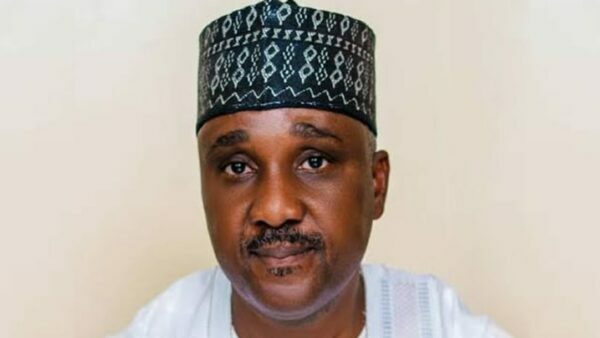The Speaker of the 10th House of Representatives, Hon. Tajudeen Abbas, has initiated a bill seeking to transfer labor matters, including minimum wage, from the Exclusive List to the Concurrent List through alterations of relevant sections of the 1999 Constitution.
The bill, which passed through First Reading last Thursday, is expected to be gazetted for Second Reading by the Committee on Rules and Business for further legislative scrutiny.
This proposed legislation follows inconclusive negotiations between employers of labor, comprising Federal and State Governments, the Organized Private Sector (OPS), and two labor unions to determine the new national minimum wage.
Recall that the two trade unions had expressed stiff opposition last week against calls made by the Southern Governors’ Forum to allow each State of the Federation to negotiate with its respective workforce.
According to the bill exclusively seen by the Nigerian Tribune, Speaker Abbas seeks, among other things, to alter the Second Schedule to the Constitution of the Federal Republic of Nigeria, Act (No 24) 1999, to transfer labor, industrial relations, industrial disputes, and minimum wage from the Exclusive Legislative List to the Concurrent Legislative List, and to effect consequential alterations to Section 254C of the constitution.
As encapsulated in the proposed bill, Speaker Abbas is seeking to amend the Second Schedule to the 1999 Constitution of the Federal Republic of Nigeria (as amended) as follows: (a) in Part I, in the Exclusive Legislative List, delete item 34 thereof; and (b) in Part II, in the Concurrent Legislative List, after paragraph 20 thereof, insert the following new item:
ALSO READ: State House clerical officer wins VP’s N1m productivity award
“20A – Labor; Industrial Relations; Industrial Disputes, Minimum Wage, and Industrial Arbitration.
The National Assembly may make laws for the Federation or any part thereof with respect to labor, including trade unions, industrial relations, conditions, safety and welfare of labor, industrial disputes, prescribing minimum wage, and industrial disputes so far as the subject matter relates to a matter upon which the National Assembly has the power to make laws under this constitution.
20B – A House of Assembly may, subject to paragraph 20A hereof, make laws for the State or any part thereof with respect to labor, including trade unions, industrial relations, conditions, safety and welfare of labor, industrial disputes, prescribing minimum wage, and industrial disputes so far as the subject matter relates to a matter upon which the House of Assembly has the power to make laws under this Constitution.”
Speaker Abbas further seeks to alter Section 254C of the Principal Act:
“(a) in subsection (1) thereof, in line 1, delete all the words from the word ‘Notwithstanding’ to the word ‘matters’ in Line 6 and insert instead these words: ‘Notwithstanding the provisions of Sections 251, 257, 272, the National Industrial Court shall, so far as the subject matter relates to a matter which the National Assembly has power to make laws under this Constitution, have and exercise jurisdiction to the exclusion of any other court in civil causes and matters;’” and (b) in subsection (1) paragraph (e), delete the word “National.”
Meanwhile, the 36 State Governors under the aegis of the Nigeria Governors’ Forum (NGF) Secretariat on Monday warned that if the proposed minimum wage is approved, Subnational Governments may face bankruptcy due to increased recurrent expenditure.
The Forum’s position is contained in a document titled “Analysis of State FAAC inflows and state expenditure profile,” presented by the NGF Secretariat to the Federal Executive Council (FEC).
According to the report, the burden of recurrent expenditure has already left Abia, Ekiti, Gombe, Imo, Katsina, Kogi, Oyo, Plateau, Sokoto, Yobe, and Zamfara in deficit in 2022.
The report predicts that if recurrent expenditure increases by 50 percent, 13 states would fall into deficit, with only 10 remaining financially stable.
According to the documents, Abia State, which has about 58,631 workers, pays N5,837,899,980.40 as wages monthly. Anambra, with 20,541 workers, pays N1,824,851,308.96 monthly as wages, in addition to N894,480,399.62 paid as pension obligations and N579,694,680.33 for debt servicing.
Bayelsa State, with 48,213 workers, pays N5,802,435,178.58 monthly in wages, in addition to N1,194,528,784.40 paid as pension obligations and N3,535,787,992.48 for debt servicing, totaling N10,532,751,955.46 as total recurrent expenditure monthly.
Benue State, with about 13,366 workers, pays N2,040,184,471.85 as monthly wages, N76,838,634.62 for pensions, and N64,685,126,826.08 for debt servicing, totaling N66,802,149,932.56 monthly.
Delta State, with about 50,871 workers, pays N8,973,081,853.50 in wages, N1,499,886,303.39 in pensions, and N72,417,433,139 in debt servicing, totaling N82,890,401,295.89.
Jigawa State, with about 44,831 workers, pays N2,795,662,113.02 in wages and N345,987,843.12 in pensions, totaling N3,141,649,956.14 monthly on recurrent expenditure.
Abia State has a total recurrent expenditure of N111,983,979,958.62, against a total revenue of N147,637,730,867.73.
Adamawa State’s recurrent expenditure stands at N70,369,399,885.57, against a total revenue of N109,722,949,684.65, while Akwa Ibom State boasts a high revenue of N444,288,683,000, with recurrent expenditure of N235,144,539,000.
Among the states, Lagos has the highest total revenue, amassing N1,243,778,878,170 in 2022, with a recurrent expenditure of N621,043,036,000, followed by Delta, with N702,020,717,460.08 and a recurrent expenditure of N377,905,100,451.83.
Rivers State amassed N525,588,159,714.88 in 2022, with recurrent expenditure of N186,974,715,774.87; Kaduna had total revenue of N222,349,875,000 and expenditure of N95,987,999,472.10; Ogun, N297,249,009,626.83, with recurrent expenditure of N178,519,010,628.42 and Oyo, with total revenue of N247,156,776,739.70 and recurrent expenditure of N152,077,804,384.65.
Kebbi State had the lowest total revenue in 2022, raking in N92,132,444,588.16 and spent N57,601,464,374.96 on recurrent expenditure, followed by Taraba, with total revenue of N101,177,283,069.87 and recurrent expenditure of N75,055,201,412.62.
Aside from FAAC allocation, some states recorded poor IGR in the 2022 data compiled by the NGF Secretariat.
Zamfara State generated N6,513,960,477.20, followed by Kebbi, with N8,630,767,122.96; Taraba, N9,744,331,840.01; and Yobe State, N9,940,554,642.00.
The IGR of Katsina (N12,821,119,042.64), Adamawa (N13,175,774,969.53), Niger (N14,427,373,136.00), Benue (N15,021,223,729.38), Plateau (N15,927,001,739.90), and Imo (N16,711,346,111.18) also showed poor revenue standings.
